Should we expect a new wave of refugees from Ukraine due to the prolongation of the war?
International Migrants Day, celebrated on December 18, has become a sad holiday for Ukraine. Russia’s full-scale invasion has provoked an exodus of more than 10 million citizens, many of whom have no plans to return to their homeland either during the war or after it ends.
Domestic demographers estimate that mass migration of women and children abroad, combined with losses among male military personnel, could lead to a population decline of up to 30 million people by 2035. At the same time, the number of 20 million people will be critical for Ukraine.
Will Ukraine continue to lose its citizens due to the duration of the war and how can the government facilitate the return of refugees from abroad now? “Telegraph” asked experts in the field of sociology and demography.
The scale of refugee crisis in numbers
To understand how critical the situation is with the outflow of Ukrainian citizens abroad as of the end of 2023, Telegraph turned to domestic sociologists.
Yuriy Goncharenko, head of the InfoLight.UA research and analysis group, provided our publication with the results of a recent study “Return of Ukrainians Home and Their Reintegration into Ukrainian Society” conducted by the NGO Democracy Support Foundation with the support of the Hanns Seidel Foundation in Ukraine, the Kyiv Security and Development Group and the Center for National Revival.
As a result of numerous social surveys, analyzes of information from open sources and in-depth interviews with Ukrainians who have left the country, as well as representatives of diaspora organizations around the world, researchers have compiled statistics on which categories of the population have left their homeland and for what reasons since the full-scale invasion of Russia.
In particular, 78.65% of migrants from Ukraine are women, 58% of refugees are married and another 11.74% have a loved one. Almost 69% have one or two children. About 62% of the surveyed migrants are aged 36 to 55.
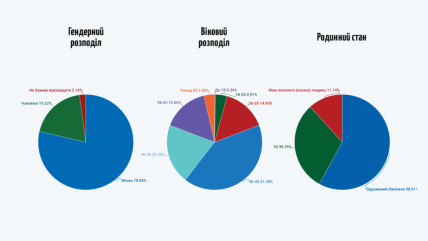
The sociologists also found that almost 86% of refugees from Ukraine had their own housing at the time of their departure, but 33.8% of these homes were damaged as a result of the fighting, and in 5% of cases they were completely destroyed.
According to the survey, residents of Kyiv, Kharkiv, and Donetsk regions were the most likely to travel abroad.
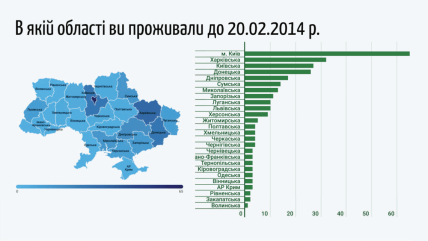
According to the surveys, more than 90% of refugees in Ukraine have relatives in Ukraine, 24.2% have lost someone close to them as a result of the full-scale war with Russia, and almost 5% have lost someone close to them since the beginning of Russia’s military aggression in eastern Ukraine until February 24, 2022.
As for the well-being in the new place, the majority of migrants surveyed in Europe noted an improvement in their financial situation.
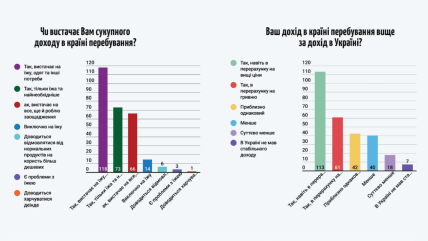
One of the decisive factors in the decision to return to Ukraine is the education of children, with more than half of underage migrants already enrolled in local educational institutions, and about 25% combining study abroad and online classes in Ukrainian educational institutions.
Of the 282 respondents to the in-depth interviews, 65 said they did not plan to return to Ukraine, 124 will make a decision based on the development of the situation in Ukraine, and 26 plan to return in the next 3-4 months.
Among the most common fears of returning to Ukraine are the prolongation of the war (81%), corruption (68%), and the state’s inability to recover (48%).

Demographers’ forecasts
According to Eurostat, there are currently more than four million Ukrainian refugees in the EU, and Poland, Germany, and Spain remain the most popular destinations for Ukrainians.
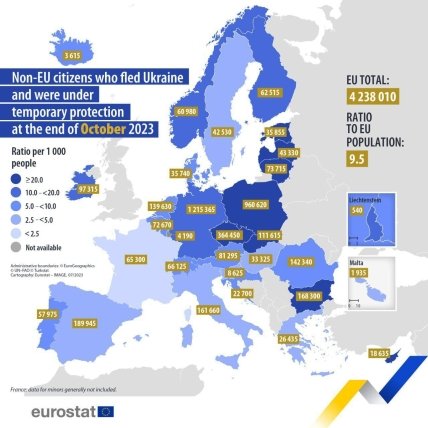
Meanwhile, domestic demographers predict a decline in the population of Ukraine to 30 million people by 2035. According to Oleksiy Pozniak, head of the Migration Research Department at the Ptukha Institute of Demography and Social Studies of the National Academy of Sciences of Ukraine, even such figures will be possible if the authorities have an effective migration policy, otherwise the situation may be worse.
The expert notes that a population of 30 million citizens will allow the development of Ukrainian territories at a sufficient level, avoiding depopulation.
“World history knows many cases when citizens left the country in times of crisis. In general, this is an almost inevitable reaction. After a war, as a rule, about 30% of migrants return home. Our situation is somewhat different from others, so our institute predicts the return of a much larger number of citizens. The exact number will depend on many aspects that are extremely difficult to predict now,” the demographer said in a comment to Telegraph.
The prolongation of the war can both improve and worsen the situation with Ukrainians leaving for other countries. In particular, citizens who did not leave their homes, hoping that the war would end quickly, may still leave, realizing that the end of the fighting is not in sight.
At the same time, those who hoped to ride out the short-term crisis abroad, leaving their families, homes, and businesses in Ukraine, may also realize that the war has turned into a protracted one, and thus will be forced to return to their previous lives in the new realities.
“The first option is possible only in case of a very serious deterioration of the military situation. Otherwise, we should not expect a new wave of migration from Ukraine, because those who had the opportunity, inclination and readiness to leave have already done so. As for the facts of people returning from abroad during the war, they do exist, but they are not a massive trend. Those who left in the first months of the invasion have already stabilized in their new place and are in no hurry to return,” the expert says.
The authorities should start developing a strategy for returning Ukrainians home right now, says Oleksiy Poznyak. And this does not require the creation of a new vertical of power, separate bodies or ministries; an effective working group to address this issue will be enough.
According to the expert, the main steps to minimize the consequences of the demographic crisis should be to improve living standards and attract labor migrants from other countries. This will allow Ukrainians to return from abroad and increase the population in general.
“Labor migration from poorer countries can be a way out for us, because if there is simply no one to work and no one to live in the country, the situation will not improve. We need to accept the fact that Ukrainian women will not give birth to as many children as we need to restore the population level. Today, this is unrealistic even for more or less developed countries in Asia and Africa. We need to accept this and look for alternatives,” the expert says.
In terms of raising living standards, Ukraine has to rely on receiving the promised investments from its Western partners, because even in peacetime it was extremely difficult for us to compete with Europe in this area.
If all the agreements on the participation of friendly states in Ukraine’s reconstruction are fulfilled, this will help to develop industry, increase jobs, and generally have a positive impact on the rebuilding of the Ukrainian economy.
“However, this is a postwar issue. The main task now is to maintain ties with our citizens in other countries. This will be the first foundation for their future return. Ukrainian refugees must be sure that they are remembered in their homeland and that the state is interested in their return ,” says Oleksiy Pozniak.

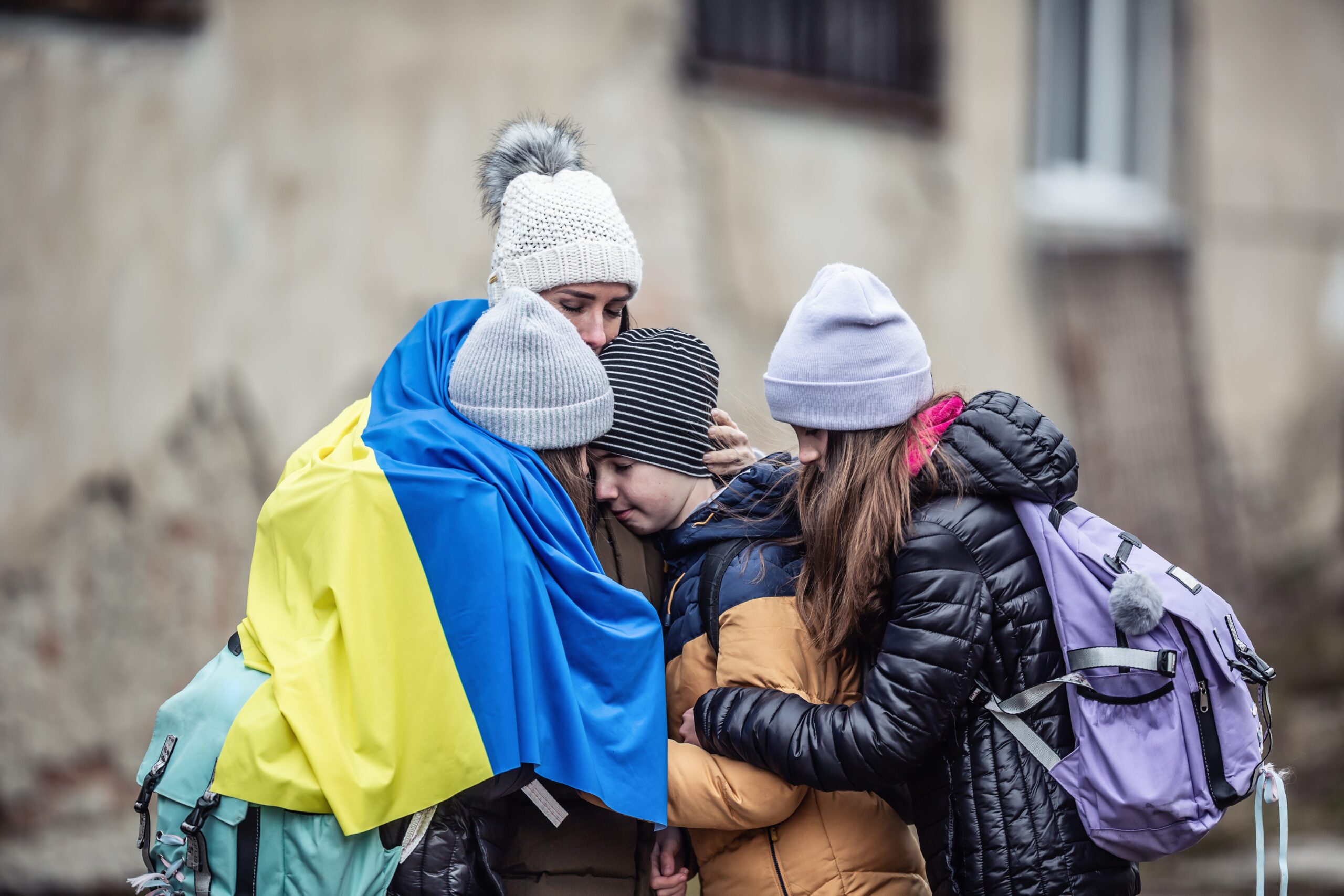
Leave a Reply